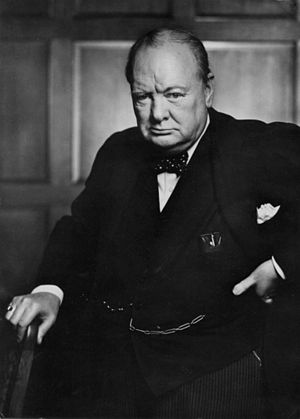Heroes or Cautionary Tales: A Case for Reexamination
Last Thursday’s Democratic debate, hosted by PBS, gave Hillary Clinton and Bernie Sanders the opportunity to square off on a slew of issues. In the latter half of the debate, questions centered on foreign policy.
As the evening drew to a close, the candidates were asked to share what leaders they turned to for inspiration in crafting foreign policy. Sanders took the opportunity to offer some pointed criticism of Clinton for her ties to former Secretary of State Henry Kissinger, stating he believed that “Henry Kissinger was one of the most destructive secretaries of state in the modern history of this country.”
Clinton’s relationship with Kissinger has been well documented. The two maintained correspondence throughout Clinton’s tenure as secretary of state, and Clinton even went so far as to review Kissinger’s book, World Order, for the Washington Post. Sanders’ issues with Kissinger largely rested with his actions in Cambodia, where Kissinger, working with Richard Nixon, gave orders to carpet bomb “anything that moves,” resulting in massive casualties. Nearly 3 million tons of bombs were dropped in an operation nicknamed Breakfast, Lunch, Snack, Dinner, Supper, and Dessert.
Kissinger’s questionable past was not limited to Cambodia. The diplomat had a hand in South African apartheid and the destabilization of Angola, and supported coups throughout Latin America. His legacy famously led to a two-part treatise by Christopher Hitchens, published in Harper’s Magazine in 2001, calling for Kissinger to be prosecuted for war crimes.
Interestingly, Sanders pointed to Winston Churchill as an example of a leader he “admire[d] very much.” Sanders made the distinction that Churchill’s politics were not his politics, and said that Churchill “was kind of a conservative guy in many respects.” Sanders did not, however, allude to some of the atrocities that Churchill presided over, such as 1943 Bengal famine in which an estimated 3 million Indians died, or his claim that he personally shot three “savages” in Sudan, or his hand in the establishment of concentration camps in South Africa. Even President Obama counts among his ancestors a victim of Churchill’s methods. Hussein Onyango Obama, grandfather to President Barack Obama, was tortured along with 150,000 members of the Kikuyu tribe in Kenya who rebelled against forced resettlement by British colonizers.
While both Kissinger and Churchill are lauded for their careful maneuvering in the face of diplomatic minefields, the legacy of human rights violations point to both moral and strategic shortcomings. When life is considered cheap, it is easy to pursue failing strategies with little mind to the cost, as was the case in the Vietnam War. The partitioning of India and Pakistan, and incitement of distrust between Hindus and Muslims , had disastrous consequences that are still being felt today (consequences later fomented by Kissinger himself).
Even if we could (or should) put aside for a moment the moral implications of such methods, we would find little long-term strategic advantages. Policies with the intent to inflict hurt on civilians may give opposing countries the incentive to acquiesce in the short term, but do little to create long-term stability. To actively contribute to human rights violations gives the affected populations further reason to be mistrustful of the intentions of others. And publicly lauding the architects of humanitarian disasters does little to enhance America’s reputation as a force in the world for peace and justice.
The controversy surrounding Clinton’s ties to Kissinger serves as a reminder that when we exalt policymakers rather than individual policy choices, we are casting our lot in with the entirety of that man’s or woman’s decisions. A better method may be to view such leaders as a cautionary tale, noting what has been effective while maintaining a careful vigilance for the underlying attitudes and prejudices that may shape their choices for the worse.
—
Emily Fox is a Senior Editor for the Journal of Diplomacy and International Relations. She graduated from Western Kentucky University with a double major in Photojournalism and Religious Studies and is currently pursuing an M.A. in Diplomacy and International Relations at Seton Hall University, where she is specializing in Foreign Policy Analysis and International Security.
Follow Emily on Twitter: @emilyefox
Follow the Journal on Twitter: @JournalofDiplo

